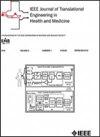用于成人多动症筛查的声音和文本特征分析:利用 DIVA 访谈的数据驱动方法
IF 4.4
3区 医学
Q2 ENGINEERING, BIOMEDICAL
IEEE Journal of Translational Engineering in Health and Medicine-Jtehm
Pub Date : 2024-02-26
DOI:10.1109/JTEHM.2024.3369764
引用次数: 0
摘要
注意力缺陷多动障碍(ADHD)是一种常见于儿童期的神经发育障碍,会导致社交发展和沟通模式的行为改变,由于全球精神科医生短缺,这种障碍往往会持续到成年而得不到诊断,导致诊断延迟,对个人福祉和社会影响造成持久后果。最近,机器学习方法已被纳入医疗保健系统,以促进诊断并增强对精神健康状况治疗结果的潜在预测。在多动症检测方面,以往的研究侧重于利用功能磁共振成像(fMRI)或脑电图(EEG)信号,这需要昂贵的设备和训练有素的人员来收集数据。近年来,语音和文本模式因其成本效益高且在数据收集过程中不需要穿戴感应设备而受到越来越多的关注。在这项与坎布里亚、诺森伯兰、泰恩和威尔国家医疗服务系统基金会合作进行的研究中,我们根据临床上流行的成人多动症诊断访谈(DIVA),收集了多动症患者和正常对照组的音频数据。随后,我们利用谷歌云语音应用程序接口(Google Cloud Speech API)将语音数据转换为文本模式。我们从数据中提取了声学和文本特征,包括传统的声学特征(如 MFCC)、专业特征集(如 eGeMAPS),以及从预先训练的深度学习模型中提取的深度学习语言和语义特征。这些特征与支持向量机一起用于多动症分类,在利用音频和文本数据进行有效的成人多动症筛查方面取得了可喜的成果。临床影响:这项研究在多动症诊断中引入了一种变革性方法,利用语音和文本分析促进早期和更方便的检测,尤其有利于精神科资源有限的地区。临床和转化影响声明:在多动症筛查中成功应用机器学习技术分析音频和文本数据,是心理健康诊断领域的一大进步,为其融入临床环境铺平了道路,并有可能在更大范围内改善患者的治疗效果。本文章由计算机程序翻译,如有差异,请以英文原文为准。
Acoustic and Text Features Analysis for Adult ADHD Screening: A Data-Driven Approach Utilizing DIVA Interview
Attention Deficit Hyperactivity Disorder (ADHD) is a neurodevelopmental disorder commonly seen in childhood that leads to behavioural changes in social development and communication patterns, often continues into undiagnosed adulthood due to a global shortage of psychiatrists, resulting in delayed diagnoses with lasting consequences on individual’s well-being and the societal impact. Recently, machine learning methodologies have been incorporated into healthcare systems to facilitate the diagnosis and enhance the potential prediction of treatment outcomes for mental health conditions. In ADHD detection, the previous research focused on utilizing functional magnetic resonance imaging (fMRI) or Electroencephalography (EEG) signals, which require costly equipment and trained personnel for data collection. In recent years, speech and text modalities have garnered increasing attention due to their cost-effectiveness and non-wearable sensing in data collection. In this research, conducted in collaboration with the Cumbria, Northumberland, Tyne and Wear NHS Foundation Trust, we gathered audio data from both ADHD patients and normal controls based on the clinically popular Diagnostic Interview for ADHD in adults (DIVA). Subsequently, we transformed the speech data into text modalities through the utilization of the Google Cloud Speech API. We extracted both acoustic and text features from the data, encompassing traditional acoustic features (e.g., MFCC), specialized feature sets (e.g., eGeMAPS), as well as deep-learned linguistic and semantic features derived from pre-trained deep learning models. These features are employed in conjunction with a support vector machine for ADHD classification, yielding promising outcomes in the utilization of audio and text data for effective adult ADHD screening. Clinical impact: This research introduces a transformative approach in ADHD diagnosis, employing speech and text analysis to facilitate early and more accessible detection, particularly beneficial in areas with limited psychiatric resources. Clinical and Translational Impact Statement: The successful application of machine learning techniques in analyzing audio and text data for ADHD screening represents a significant advancement in mental health diagnostics, paving the way for its integration into clinical settings and potentially improving patient outcomes on a broader scale.
求助全文
通过发布文献求助,成功后即可免费获取论文全文。
去求助
来源期刊

IEEE Journal of Translational Engineering in Health and Medicine-Jtehm
Engineering-Biomedical Engineering
CiteScore
7.40
自引率
2.90%
发文量
65
审稿时长
27 weeks
期刊介绍:
The IEEE Journal of Translational Engineering in Health and Medicine is an open access product that bridges the engineering and clinical worlds, focusing on detailed descriptions of advanced technical solutions to a clinical need along with clinical results and healthcare relevance. The journal provides a platform for state-of-the-art technology directions in the interdisciplinary field of biomedical engineering, embracing engineering, life sciences and medicine. A unique aspect of the journal is its ability to foster a collaboration between physicians and engineers for presenting broad and compelling real world technological and engineering solutions that can be implemented in the interest of improving quality of patient care and treatment outcomes, thereby reducing costs and improving efficiency. The journal provides an active forum for clinical research and relevant state-of the-art technology for members of all the IEEE societies that have an interest in biomedical engineering as well as reaching out directly to physicians and the medical community through the American Medical Association (AMA) and other clinical societies. The scope of the journal includes, but is not limited, to topics on: Medical devices, healthcare delivery systems, global healthcare initiatives, and ICT based services; Technological relevance to healthcare cost reduction; Technology affecting healthcare management, decision-making, and policy; Advanced technical work that is applied to solving specific clinical needs.
 求助内容:
求助内容: 应助结果提醒方式:
应助结果提醒方式:


